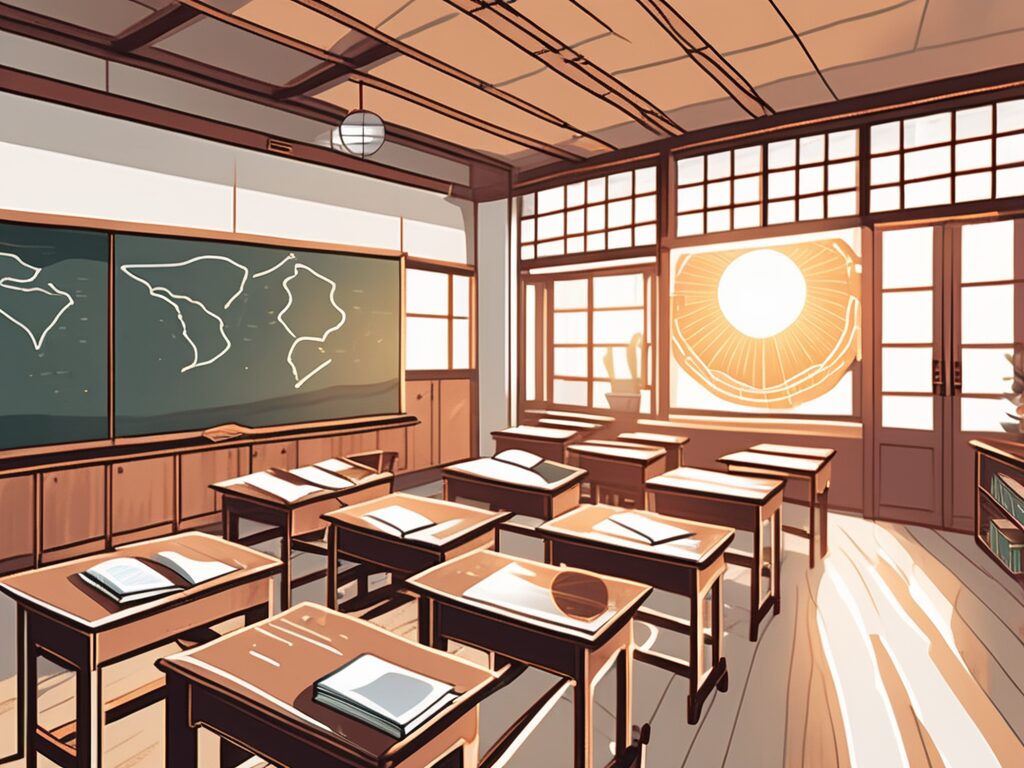South Korea, a nation known for its technological advancements and high academic standards, has a unique approach to education. The teaching practices in South Korea are distinct, effective, and have been instrumental in the country’s educational success. This article delves into the various teaching practices that have made South Korea a global leader in education.
The Importance of Education in South Korea
Education in South Korea is held in high regard. It’s viewed as the primary driver of personal and national advancement. The country’s Confucian heritage emphasises the value of education and the pursuit of knowledge. This cultural backdrop has shaped the country’s education system and teaching practices.
South Korea’s education system is highly competitive. Students are expected to excel acadically, and there’s a strong emphasis on rote learning and memorisation. This approach has its critics, but it’s also been key to South Korea’s impressive educational outcomes.
Key Teaching Practices in South Korea
South Korean teaching practices are characterised by a blend of traditional and modern methods. Let’s take a closer look at some of these practices.
Emphasis on Rote Learning
Rote learning, where students memorise information based on repetition, is a cornerstone of South Korean education. This method is often criticised for stifling creativity and critical thinking. However, in South Korea, it’s seen as a necessary tool for mastering foundational knowledge. It’s akin to learning multiplication tables in mathematics – a fundamental step before moving on to more complex problems.
Moreover, rote learning is not the sole focus. South Korean teachers also encourage understanding and application of knowledge. They use rote learning as a stepping stone, not the end goal.
Use of Technology
South Korea is a global leader in technology, and this extends to their classrooms. Many schools use digital textbooks and have high-tech facilities. This integration of technology into teaching practices helps prepare students for a digital future. It’s like equipping students with a digital compass in an increasingly online world.
Teachers use technology to make lessons more engaging and interactive. For example, they might use online quizzes to test understanding or virtual reality to bring historical events to life. This blend of traditional and modern teaching methods is a hallmark of South Korean education.
Teacher-Student Relationships
Teacher-student relationships in South Korea are built on respect and discipline. Teachers are highly respected figures, and their authority is rarely questioned. This respect is reciprocated, with teachers taking a keen interest in their students’ academic and personal development.
However, this doesn’t mean that South Korean classrooms are overly formal or rigid. There’s room for humour, creativity, and individual expression. Teachers strive to create a positive learning environment where students feel comfortable and motivated to learn.
Private Tutoring and After-School Classes
Private tutoring and after-school classes, known as ‘hagwons’, are a significant part of South Korean education. These classes provide additional instruction and practice, helping students keep up with the rigorous curriculum. It’s like having a personal trainer for academics, pushing students to reach their full potential.
However, this intense focus on education can lead to high stress levels among students. South Korean educators are aware of this issue and are working to find a balance between academic rigour and student wellbeing.
Conclusion
South Korea’s teaching practices are a blend of tradition and innovation. They reflect the country’s high regard for education and its commitment to preparing students for the future. While these practices have their critics, they’ve also contributed to South Korea’s impressive educational outcomes.
As with any education system, there’s always room for improvement. South Korean educators continue to refine their teaching practices, striving to balance academic rigour with student wellbeing. It’s a challenging task, but one that South Korea is well-equipped to handle.
Elevate Your Teaching Career with IPGCE
As you reflect on the exemplary teaching practices of South Korea, consider how advancing your own educational qualifications can propel your teaching career to new heights. IPGCE offers an International Postgraduate Certificate in Education, a Level 7 programme that not only enhances your credentials but also provides a gateway to a world of opportunities. By joining the UK’s #1 Teacher Training Course, you can overcome the barriers of stringent qualification requirements, enjoy a significant increase in interview callbacks, and unlock potential career progression with notable salary boosts. Connect with a global network of educators, gain a deeper understanding of international curricula, and balance professional development with your current commitments through our flexible online study options. Don’t let isolation or limited advancement hold you back. Join the UK’s #1 Teacher Training Course today and take the first step towards an enriched teaching career that mirrors the success of South Korea’s educational system.

